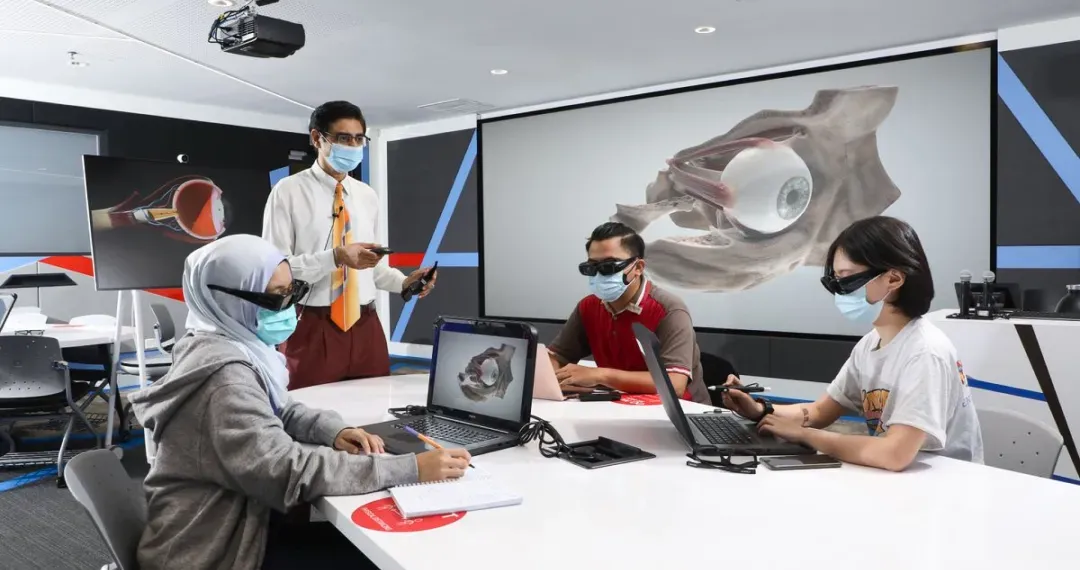
- Monash University Malaysia
- Bachelor of Pharmaceutical Science
Bachelor of Pharmaceutical Science

The Bachelor of Pharmaceutical Science is one of the Medicine and Health Sciences Bachelor's Degree at Monash University Malaysia, that is offering majors in Pharmaceutical Science. On this page, we break down the full course details including entry requirements, tuition fees, intake dates, scholarships and living cost in Monash, Bandar Sunway, Selangor. Compare this programme with similar Medicine and Health Sciences courses across Malaysia and check your eligibility instantly.
Why Apply to this Course?
Ranked #2 in the world Monash University is ranked #2 in the world for pharmacy and pharmacology (QS World University Rankings by Subject 2023). We are a global leader in pharmaceutical science education and research, and this industry-focused course will set you up for successful employment as a pharmaceutical scientist in Malaysia and the wider region. A future-proof career Globally, pharmaceuticals is a growth sector and your skills will always be relevant. According to the Economy Research Institute's Expert Salary Database, the salary potential for pharmaceutical scientists in Malaysia is expected to increase by 22% over the next five years. Hands-on learning Our unique curriculum equips you with the knowledge and skills necessary to contribute effectively across the entire continuum of the pharmaceutical business. With a focus on practical, hands-on learning, you will have the opportunity to engage with cutting-edge research, develop critical thinking skills, and work on real-world projects that make a tangible impact. Industry-standard instrumentation You'll have access to state-of-the-art facilities, including advanced laboratories and equipment, where you'll learn how to design and conduct experiments and how to interpret and effectively communicate your data. Expert guidance Our faculty consists of industry-leading experts with extensive experience in the pharmaceutical sector, who are passionate about sharing their knowledge with the next generation of pharmaceutical scientists. With their mentorship and guidance, you'll receive the highest quality education and be well-prepared for successful careers in the field. Practical experience The course culminates in a major research project supervised by experts in the field and an industry placement scheduled for four weeks of full-time work in your third year. You’ll also undertake a Professional Experience unit that will prepare you to enter the job market. You will gain real-world experience and build your professional network. Bursaries Receive a tuition fee waiver of RM10,000 for the first year of your study. Click here for details.
Studying in Bandar Sunway, Selangor



- Location : Bandar Sunway, Selangor, Malaysia.
- Nearby : Located within Sunway City; adjacent to Sunway Pyramid Mall, Sunway Lagoon, and Sunway Medical Centre.
- Getting here : Accessible via the SunU-Monash BRT station, Sunway Shuttle Bus Service, and the Canopy Walk linking to Sunway Pyramid Mall. Car access via major highways with on-campus parking available.
- Faculties include Business, Engineering, Information Technology, Science, Arts & Social Sciences, Medicine & Health Sciences, and Graduate & Professional Studies.
- Monash University Malaysia is a global branch of Monash University Australia, offering modern learning facilities, vibrant student life, and on-campus residences. Located 20 km from Kuala Lumpur city centre.
Experience Campus Life Firsthand
As Malaysia's #1 digital university enrolment experts, we're perfectly positioned to help you organise a personalised campus tour. Get in touch with us today to start planning your visit!

Entry Requirement
Here are the qualifications and details on the grades or scores required to qualify for this course
Requirements & Prerequisites
Score 9.5. Chemistry and Higher level mathematics (Australian Year 12 equivalent) are Monash University’s formal prerequisites.
English Language Requirement
How to Know If You’re Eligible?
Our education consultants can perform a detailed review for you and get confirmation from the university regarding your eligibility. Learn what we'll check –
Minimum Requirement
Make sure your overall grades meet the requirement (e.g. ABB)
Subject Prerequisites
Ensure you’ve taken the necessary subjects related to your course.
English Language
Meet the required English language requirement or check possibility for English test exemption.
Other Assessments
Identify additional assessments, if applicable e.g. portfolio, interview, entrance exams
Study Cost & Duration
Estimated fees and living cost so that you know how much to budget for your studies
Tuition Fee
Can’t decide what’s right for you?
Let our expert consultants guide you.

Living Cost in Bandar Sunway, Selangor
Get a quick estimate of your monthly living costs if you’re staying near campus, with a breakdown of what's covered. Actual costs may vary based on your lifestyle.
Living costs with rent
or occasional e-hailing

Looking for Similar Programmes?
Explore other institutions in Malaysia that offer similar courses in Pharmaceutical Science with tuition fees & entry requirements that fit your profile.
Get matched to all suitable courses & scholarships in just 5 minutes!
Scholarships
Find the list of applicable scholarships by Monash University Malaysia that you could apply to for Bachelor of Pharmaceutical Science and get the complete scholarship details.
Monash Equity Scholarship
Fee waiver Up to 100%
Requirements
- Open for Malaysian citizen or permanent resident
- Meet the minimum admission requirements for your chosen course
- Excellence in academic and extra-curricular activities
- Only available for selected Degree and Master Courses
Awards Details
Selection for the offer is carried out by the university. The details are as follows:
- Offer A
- 100% tuition fee and associated fees waiver
- One-off laptop allowance
- Monthly stipend to cover basic living expenses.
- Offer B
- 50-100% tuition fee waiver
- One-off laptop allowance.
- Applicable for all undergraduate courses excluding the Bachelor of Medical Science and Doctor of Medicine, Bachelor of Business and Commerce and Bachelor of Computer Science, and Bachelor of Business and Commerce and Bachelor of Digital Media and Communication.
- Master of Clinical Psychology or Master of Professional Counselling
Monash Bursaries For Indonesian Students
Fee waiver of RM 5,000
Requirements
- Open for Indonesian students only
- Applicable for any undergraduate course except for the Bachelor of Medical Science and Doctor of Medicine, and Bachelor of Pharmacy (Honours)
- Applicant must meet the following academic requirements:
- Completed the Sekolah Menengah Atas 3 qualification with a minimum score of 9.0 and above or GPA 3.65 (only your actual examination results will be considered)
- Not have commenced your tertiary studies or be transferring with credit exemptions and/or advanced standing.
Awards Details
- RM 2,500 tuition fee waiver per semester for a total of RM 5,000 for first year of study
Application
Contact us and our education consultants will make sure you have all the information you need to successfully apply to Monash University Malaysia for your desired intake. Application fee may apply and is to be paid directly to the university.
Registration Details
Apply Worry-Free with Expert Guidance
Once our consultant has confirmed that you meet the budget and entry requirements for the course, you will be provided with :
Application Timeline in view of the application deadlines of all your target universities (see below for the general intake deadlines for this university)
Checklist of Supporting Documents, which may vary based on your student profile and courses applied to, along with samples of the expected document format.
Online Support to guide you through the application procedures, including:
- Form Filling
- Pre-Submission Review of Form and Documents
- Application Fee Payment
- Follow-up on Application Status
- Scholarship Application
Our student services are FREE, so kickstart your application now!
For study abroad, plan early, no later than 3 MONTHS before deadline.
Research Checklist
Monash University Malaysia

Get Your Education Plan
Talk to our education consultants for free guidance and personalised insights on universities and courses that best fit you.

